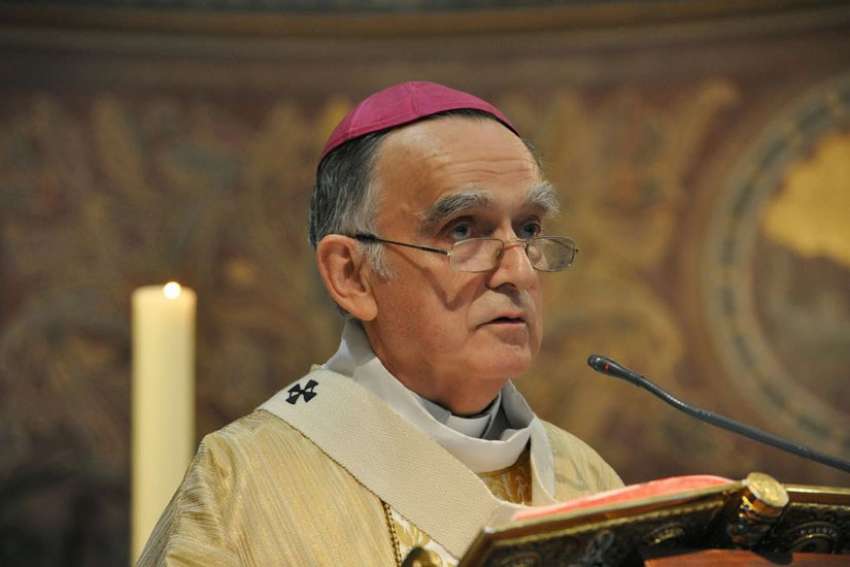The archbishop said the idea of illegal digital interference could have an impact on a woman's decision to get an abortion. Referring to the oft-used French expression for abortion – "voluntary pregnancy interruption" – Archbishop Pontier added that the bill would make it less "voluntary," simply because it would make it "less and less free," calling it a "serious infringement to democratic principles."
Earlier this fall, the French government presented a draft law regarding the creation of illegal digital interference on abortion. France's National Assembly passed the bill Dec. 1, and the Senate is expected to consider it Dec. 7, with a final vote in February. If it passes, it would condemn websites for "intimidating and/or putting psychological or moral pressures" in order to dissuade someone from getting an abortion. The text modifying an already existing abortion law raised acrimonious political debates in France.
Politicians backing the legislation say it is mostly aimed at websites that look very similar to official or neutral websites, but do everything to discourage women from getting an abortion, thus tricking users with disinformation. The bill would institute penalties of up to two years of incarceration and a 30,000-euro ($31,820) fine.
Laurence Rossignol, France's minister for families, said it is time for the government to react to websites offering biased information. Opponents say it would violate free speech.
In the Nov. 22 letter, released Nov. 28, Archbishop Pontier said the legislation does not take into account a woman's distress regarding her decision to get an abortion, especially since the abolition of a mandatory one-week waiting period earlier this year.
"In other words, women don't find ... official support to their questions in conscience," said Archbishop Pontier. He said websites are more than ever an essential part in helping women find some answers.
"Some of our fellow citizens, joined in associations, have decided to give their time, particularly through digital instruments, to listening to hesitant or distressed women regarding a possible choice for abortion," he wrote.
The success of such listening websites "proves that they fill a need. Must we worry? Many women turn to these sites after an abortion because they need a place to put words on what they lived. Others persevere in their plan to abort. Finally, others decide to keep their child. This diversity of expression and behavior is made possible by this place of liberty that are these websites. Their positioning calls for reflection, and this is precisely what they are being criticized for (in the legislation). It's as if they should adopt at once a favorable positioning toward abortion. However, such a grave matter cannot be constrained in militant positions," the archbishop wrote.
"Should we necessarily exclude every alternative to abortion to be considered a model citizen? Can the slightest encouragement to keep one's child ... be called a 'psychological and moral pressure?'" he asked.
(Story originally posted November 30, 2016; Updated Dec. 2, 2016)


